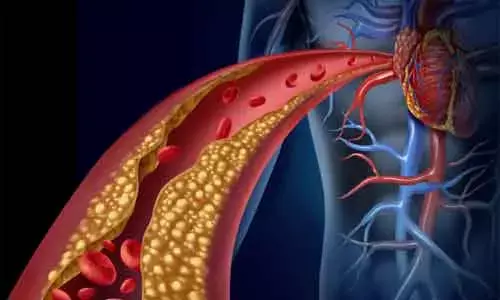- Home
- Medical news & Guidelines
- Anesthesiology
- Cardiology and CTVS
- Critical Care
- Dentistry
- Dermatology
- Diabetes and Endocrinology
- ENT
- Gastroenterology
- Medicine
- Nephrology
- Neurology
- Obstretics-Gynaecology
- Oncology
- Ophthalmology
- Orthopaedics
- Pediatrics-Neonatology
- Psychiatry
- Pulmonology
- Radiology
- Surgery
- Urology
- Laboratory Medicine
- Diet
- Nursing
- Paramedical
- Physiotherapy
- Health news
- Fact Check
- Bone Health Fact Check
- Brain Health Fact Check
- Cancer Related Fact Check
- Child Care Fact Check
- Dental and oral health fact check
- Diabetes and metabolic health fact check
- Diet and Nutrition Fact Check
- Eye and ENT Care Fact Check
- Fitness fact check
- Gut health fact check
- Heart health fact check
- Kidney health fact check
- Medical education fact check
- Men's health fact check
- Respiratory fact check
- Skin and hair care fact check
- Vaccine and Immunization fact check
- Women's health fact check
- AYUSH
- State News
- Andaman and Nicobar Islands
- Andhra Pradesh
- Arunachal Pradesh
- Assam
- Bihar
- Chandigarh
- Chattisgarh
- Dadra and Nagar Haveli
- Daman and Diu
- Delhi
- Goa
- Gujarat
- Haryana
- Himachal Pradesh
- Jammu & Kashmir
- Jharkhand
- Karnataka
- Kerala
- Ladakh
- Lakshadweep
- Madhya Pradesh
- Maharashtra
- Manipur
- Meghalaya
- Mizoram
- Nagaland
- Odisha
- Puducherry
- Punjab
- Rajasthan
- Sikkim
- Tamil Nadu
- Telangana
- Tripura
- Uttar Pradesh
- Uttrakhand
- West Bengal
- Medical Education
- Industry
Mediterranean diet may lower CVD risk in familial hypercholesterolemia patients: Study

Brazil: Higher adherence to Mediterranean diet may improve lipid levels and inflammation in familial hypercholesterolemia (FH) patients, finds a recent study in the journal Nutrition, Metabolism & Cardiovascular Diseases.
FH is characterized by high atherosclerosis and elevated LDL-cholesterol (LDL-C) risk. However, the impact of different dietary patterns on atherosclerosis biomarkers has been poorly studied in FH. The study by Raul D. Santos, Heart Institute (InCor) University of Sao Paulo Medical School Hospital, Sao Paulo, Brazil, and colleagues aimed to verify the association of adherence to a Mediterranean diet with biomarkers of dyslipidemia and low-grade inflammation in molecularly proven FH adults from Brazil (BR) and Spain (SP) in this cross-sectional study.
For the purpose, the researchers assessed adherence to the Mediterranean diet by a validated score and generalized estimating equations were used to evaluate its association with plasma LDL-C, apolipoprotein-B (ApoB) and high sensitivity C-reactive protein (hs-CRP) concentrations.
A total of 92 (mean age 45 years, 58.7% females) and 98 FH individuals (mean age 46.8 years, 60.2% females) were included respectively from BR and SP.
Key findings of the study include:
- FH causing variants did not differ between countries. LDL-C, ApoB and hs-CRP concentrations were higher in BR than in SP: 179 and 161 mg/dL; 141 and 103(88-134) mg/dL; and 1.6 and 0.8 mg/L respectively.
- Most of BR had low adherence (n=77, 83.7%), while the majority of SP were divided into moderate (n=35, 35.7%) and strong adherence to the Mediterranean diet (n=37, 37.8%).
- There was a significant inverse association of adherence to the Mediterranean diet score with higher LDL-C, ApoB, and hs-CRP after adjusting for socio economic parameters, caloric and fatty acid intakes as well as pharmacological lipid lowering therapies.
"Higher adherence to a Mediterranean diet was associated with better dyslipidemia and low-grade inflammation profiles in FH," wrote the authors.
Reference:
The study titled, "Adherence to a Mediterranean Diet, Dyslipidemia and Inflammation in Familial Hypercholesterolemia," is published in the journal Nutrition, Metabolism & Cardiovascular Diseases.
DOI: https://www.nmcd-journal.com/article/S0939-4753(21)00174-5/fulltext
Dr Kamal Kant Kohli-MBBS, DTCD- a chest specialist with more than 30 years of practice and a flair for writing clinical articles, Dr Kamal Kant Kohli joined Medical Dialogues as a Chief Editor of Medical News. Besides writing articles, as an editor, he proofreads and verifies all the medical content published on Medical Dialogues including those coming from journals, studies,medical conferences,guidelines etc. Email: drkohli@medicaldialogues.in. Contact no. 011-43720751


